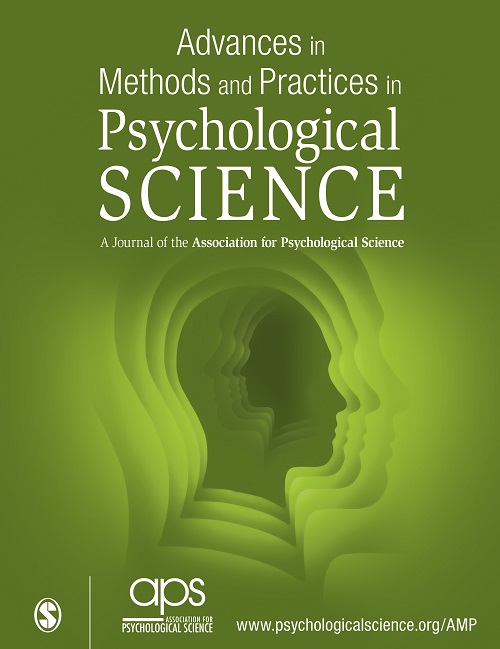中国开放科学网:从零开始构建开放科学社区
IF 13.4
1区 心理学
Q1 PSYCHOLOGY
Advances in Methods and Practices in Psychological Science
Pub Date : 2023-01-01
DOI:10.1177/25152459221144986
引用次数: 0
摘要
开放科学正在成为心理学及相关领域的主流科学思想。然而,研究人员,特别是发展中国家的早期职业研究人员,在参与开放科学并推动其发展方面面临着重大障碍。在中国,各种社会和文化因素阻碍了ECR参与开放科学,例如缺乏专门的沟通渠道和谦虚的规范。为了让讲中文的ECR和广大学者听到开放科学的声音,中国开放科学网(COSN)于2016年成立。COSN的核心价值观是面向基层、多样性和包容性,它已经从一个小型的开放科学兴趣小组发展成为华语研究界和国际开放科学界公认的网络。到目前为止,COSN已经组织了三次面对面研讨会、12次教程、48次讲座和55次期刊俱乐部会议,并将15篇与开放科学相关的文章和博客从英文翻译成中文。目前,COSN的主要社交媒体账号(即微信公众号)拥有23000多名订阅者,1000多名研究人员/学生积极参与开放科学的讨论。在这篇文章中,我们分享了我们建立这样一个网络的经验,以鼓励发展中国家的ECR启动自己的开放科学倡议,并参与全球开放科学运动。我们预见到COSN将与所有其他本地和国际网络共同努力,进一步加速开放科学运动。本文章由计算机程序翻译,如有差异,请以英文原文为准。
The Chinese Open Science Network (COSN): Building an Open Science Community From Scratch
Open Science is becoming a mainstream scientific ideology in psychology and related fields. However, researchers, especially early-career researchers (ECRs) in developing countries, are facing significant hurdles in engaging in Open Science and moving it forward. In China, various societal and cultural factors discourage ECRs from participating in Open Science, such as the lack of dedicated communication channels and the norm of modesty. To make the voice of Open Science heard by Chinese-speaking ECRs and scholars at large, the Chinese Open Science Network (COSN) was initiated in 2016. With its core values being grassroots-oriented, diversity, and inclusivity, COSN has grown from a small Open Science interest group to a recognized network both in the Chinese-speaking research community and the international Open Science community. So far, COSN has organized three in-person workshops, 12 tutorials, 48 talks, and 55 journal club sessions and translated 15 Open Science-related articles and blogs from English to Chinese. Currently, the main social media account of COSN (i.e., the WeChat Official Account) has more than 23,000 subscribers, and more than 1,000 researchers/students actively participate in the discussions on Open Science. In this article, we share our experience in building such a network to encourage ECRs in developing countries to start their own Open Science initiatives and engage in the global Open Science movement. We foresee great collaborative efforts of COSN together with all other local and international networks to further accelerate the Open Science movement.
求助全文
通过发布文献求助,成功后即可免费获取论文全文。
去求助
来源期刊
CiteScore
21.20
自引率
0.70%
发文量
16
期刊介绍:
In 2021, Advances in Methods and Practices in Psychological Science will undergo a transition to become an open access journal. This journal focuses on publishing innovative developments in research methods, practices, and conduct within the field of psychological science. It embraces a wide range of areas and topics and encourages the integration of methodological and analytical questions.
The aim of AMPPS is to bring the latest methodological advances to researchers from various disciplines, even those who are not methodological experts. Therefore, the journal seeks submissions that are accessible to readers with different research interests and that represent the diverse research trends within the field of psychological science.
The types of content that AMPPS welcomes include articles that communicate advancements in methods, practices, and metascience, as well as empirical scientific best practices. Additionally, tutorials, commentaries, and simulation studies on new techniques and research tools are encouraged. The journal also aims to publish papers that bring advances from specialized subfields to a broader audience. Lastly, AMPPS accepts Registered Replication Reports, which focus on replicating important findings from previously published studies.
Overall, the transition of Advances in Methods and Practices in Psychological Science to an open access journal aims to increase accessibility and promote the dissemination of new developments in research methods and practices within the field of psychological science.

 求助内容:
求助内容: 应助结果提醒方式:
应助结果提醒方式:


